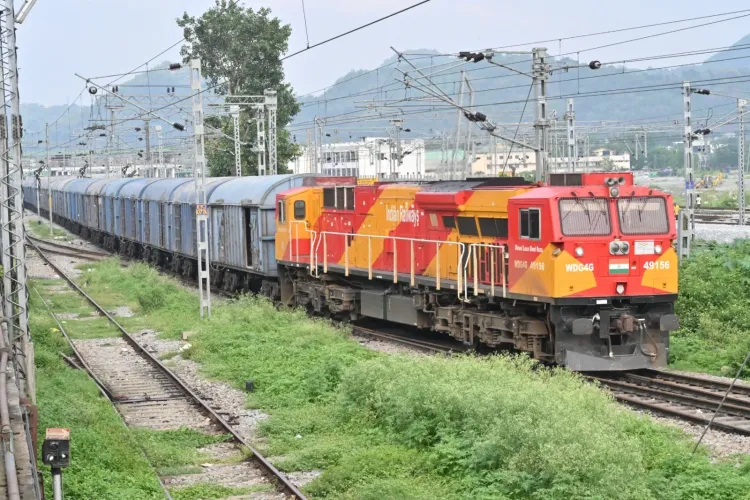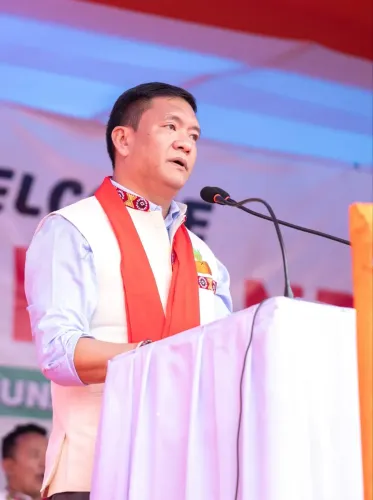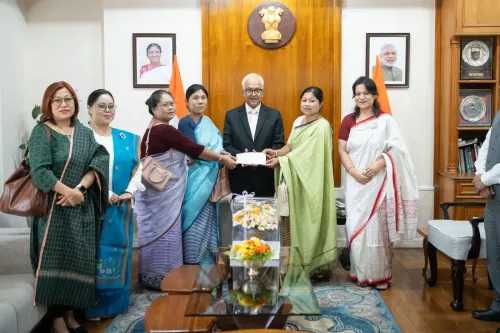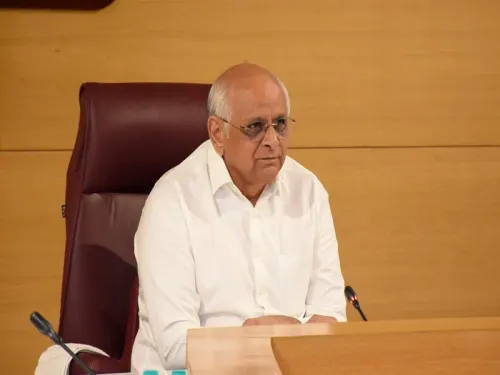How is the Northeast Frontier Railway Achieving 2.37% Growth in Freight Unloading?

Synopsis
Key Takeaways
- Freight Unloading Growth: NFR achieved a 2.37% increase in freight unloading.
- Essential Commodities: A significant portion of freight supports essential supplies.
- Infrastructure Improvements: Doubling projects enhance freight movement efficiency.
- Environmental Initiatives: NFR is implementing an Integrated Garbage Treatment System.
- Widespread Operations: NFR operates over 6,400 km of tracks in the region.
Guwahati, Aug 10 (NationPress) The Northeast Frontier Railway (NFR) has demonstrated remarkable growth in its freight unloading operations, according to officials speaking on Sunday.
The Chief Public Relations Officer (CPRO) of NFR, Kapinjal Kishore Sharma, reported that in July 2025, a total of 1,081 freight-carrying rakes were unloaded, reflecting a 2.37 percent increase from the previous year.
A substantial amount of this freight traffic is crucial for the support of the seven northeastern states.
In July 2025, Assam saw the unloading of 590 rakes, with 267 rakes dedicated to essential commodities.
During this time, Tripura had 89 rakes unloaded, Nagaland had 15, Arunachal Pradesh saw nine, Manipur had 14, and both Meghalaya and Mizoram had three rakes each.
Furthermore, West Bengal recorded 212 rakes and Bihar had 146 rakes unloaded under the jurisdiction of NFR during July.
The reliable supply of essential and additional commodities is vital for maintaining daily life and fostering economic growth in the Northeastern region.
Sharma emphasized that the rapid completion of doubling projects in critical sections of the NFR has significantly improved both inward and outward freight movement, which facilitates quicker and more efficient goods transportation.
This upgrade in infrastructure has directly influenced the continuous growth in freight unloading within the zone, added the CPRO.
The NFR operates across the Northeastern states, extends into seven districts of West Bengal, and five districts of Bihar, with an extensive network of over 6,400 km of tracks.
In line with enhancing environmental sustainability and advocating for scientific waste management, NFR has initiated a comprehensive survey for an Integrated Garbage Treatment System (IGTS).
According to CPRO Sharma, the IGTS will be implemented at NFR headquarters in Maligaon, near Guwahati, and at Pandu Railway Colonies that fall under the Lumding railway division.
The survey is being conducted by the Indian Institute of Technology Guwahati (IITG), following a Memorandum of Understanding signed with NFR.
As part of this partnership, IITG will provide technical consultancy and perform extensive field studies to evaluate the feasibility, design, and execution strategy for the proposed system.









